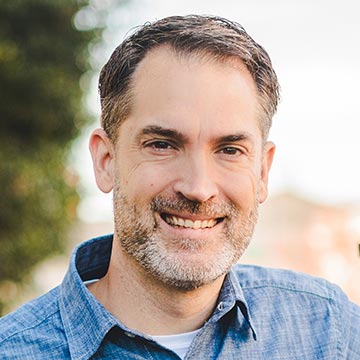2 July 2018 · Global Partnership for Zero Leprosy
Q&A: Meet Bill Simmons, Leadership Team Chair
Bill Simmons’ life journey prepared him well for the work of the American Leprosy Missions and the Global Partnership for Zero Leprosy. In this interview, Bill shares his early life experiences, his approach to leadership, and what’s essential for the partnership now.

Describe your early life experience in Africa, and how this shaped who you are.
I spent my teenage years in the Democratic Republic of the Congo (then Zaïre), where my parents were missionaries. It was a collision of cultures, language and ideology. I still enjoy being in cross-cultural settings, which enhances what I do today.
Growing up in Africa, I saw overwhelming needs but learned to discern when to take action. I discovered that I can’t walk in others’ shoes but I can stand really close. In most contexts and cultures, people already have the answers, they just may lack the resources to realize them. Instead of trying to fix a problem, I’ve learned to ask: What can I add or contribute? And that’s why I do what I do today. I get to help connect resources to people around the world who are trying to make an impact, and hopefully over time our collective impact will be huge.
Instead of trying to fix a problem, I’ve learned to ask: What can I add or contribute?
After returning to the U.S. and getting a degree in political science, you worked for a bookstore chain, eventually becoming president and CEO. What did you learn during this 20-year-period of running a business?
During this time, I experienced both growth—we grew from 12 stores to 75 stores in a 5-year period—and economic downturn. I learned how to manage in both good times and tough circumstances, while building systems of transparency and honoring other people.
How did those experiences prepare you for being president and CEO of the American Leprosy Missions (ALM)?
I think about the organization as a business in some aspects and am willing to take risks. Many nonprofits fall in the trap of acting conservatively. At ALM we’re willing to take risks because our mission is so important. We have to take risks in order to solve challenging issues.
However, unlike the business world, we don’t measure success by profitability. We exist for results that relate to people, impact and outcomes. Finances are the means to accomplish those ends, but they’re not the objective. I remind myself that every year is a successful year because every year, we’ve helped create outcomes for people they wouldn’t have experienced otherwise.
Describe your role as leadership chair for the partnership.
I consider my role to be similar to an orchestra conductor. Everyone on the team is talented and an expert in their own right. My role is to help everyone stay on the same sheet of music—to be effective and stay on course.
I also hope to be an advocate for the partnership, raising awareness and the need for action.
How do you engage stakeholders with various goals and backgrounds?
While the leadership team will need to take positions on topics, agreement is not the main goal. I want to help create an environment where people feel comfortable voicing different opinions but are also willing to work together.
What’s most important for the partnership now?
It’s essential to establish two working groups and stay on schedule. Working with the secretariat, I want to effectively manage the timeline and targets, so the partnership can demonstrate serious commitment toward the goal of zero leprosy.
What do you do outside of your professional life? Any hobbies?
My family keeps me busy. My wife and I will celebrate 30 years of marriage this year, and we have three grown sons, an 11-year-old daughter, a 1-year-old grandson, and two dogs.
I’ve watched way too many movies and continue to try to read at least two books a month every year, most of them fiction. But, family, coffee, a book, a hammock and the mountains, those ingredients make a great relaxing day for me.